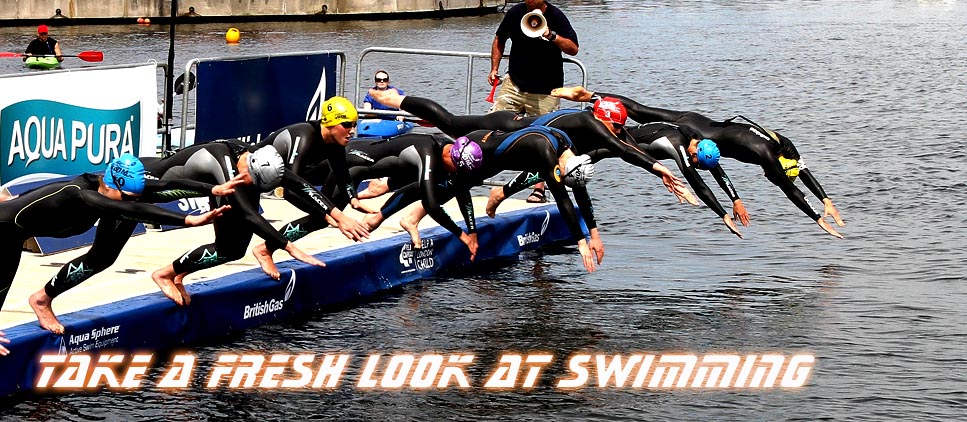Hi all,
So here is a really good article about marathon swimming and… fat! It is a very interesting article in H2Open magazine by Simon Griffiths. Essentially he tries to mathamatically work out the cost / benefit to gaining weight (fat) for cold water swims like the English Channel (around 60F) and to a lesser degree, Lake Ontario (around 70F… in August!… hopefully).
Check it out below, or on the website, interesting read and surprising results. I’m not entirely sure I agree with the magnitude of the conclusion, but I do agree with the general jist of it!
To see their detailed analysis click: http://www.h2openmagazine.com/nutrition/quantifying-the-benefits-of-fat-for-open-water-swimmers.html
Cheers,
Rob
PS. despite the picture below… this is, of course, talking about cold water swimming WITHOUT a wetsuit! 😉
 Conventional wisdom and many (if not most) long-distance swimmers say you should fatten up to increase your tolerance to cold. Simple physics will tell you a larger person will cool down more slowly than a small one, and studies of swimmers have confirmed an inverse correlation between body mass index to core body temperature drop during long swims.
Conventional wisdom and many (if not most) long-distance swimmers say you should fatten up to increase your tolerance to cold. Simple physics will tell you a larger person will cool down more slowly than a small one, and studies of swimmers have confirmed an inverse correlation between body mass index to core body temperature drop during long swims.
But, what we feel is missing, is a proper assessment of benefits (or otherwise) of an individual increasing their weight.
Someone training for a long distance swim will typically:
- Eat lots in an attempt to put on weight
- Increase their amount of training
- Expose themselves repeatedly to cold water
Because all these activities are going on at the same time it’s very difficult to untangle the effects of each of these independently. In particular, both exposure to cold water and putting on weight will increase your tolerance, but what is the contribution of each?
Secondly, changing your body shape could slow down your swimming, but this will be countered by the increased training. Would your performance increase be even greater without the extra weight to drag through the ocean? The fact you become fitter means you can exercise at a greater intensity – and hence generate more heat – for a longer time and this will also impact your ability to withstand chilly conditions.
We therefore decided to take a mathematical look at things to see if, on a theoretical level, we could estimate the cold tolerance benefits of fat alone. It’s quite complicated and completely feasible that we’ve got our sums totally wrong, but we estimate the benefits are quite small.
We think there are two factors to take into account:
- The actual increase in mass (as a larger body takes longer cool)
- The insulation benefits of fat.
Our conclusion: increasing your body weight by 10% will increase the time you can tolerate a particular temperature of water by 6.2%. In other words, if you can currently tolerate a particular temperature for 1 hour then increasing your body weight by 10% will give you just under 4 minutes extra.
We suspect the extra padding may slow you down by a similar amount: a distance that previously took 1 hour to swim would now take a few minutes longer.
But would you dare to defy years of experience and the wisdom of hundreds of successful Channel swimmers and not attempt to increase your weight for a Channel crossing?
Let us know. http://www.h2openmagazine.com/